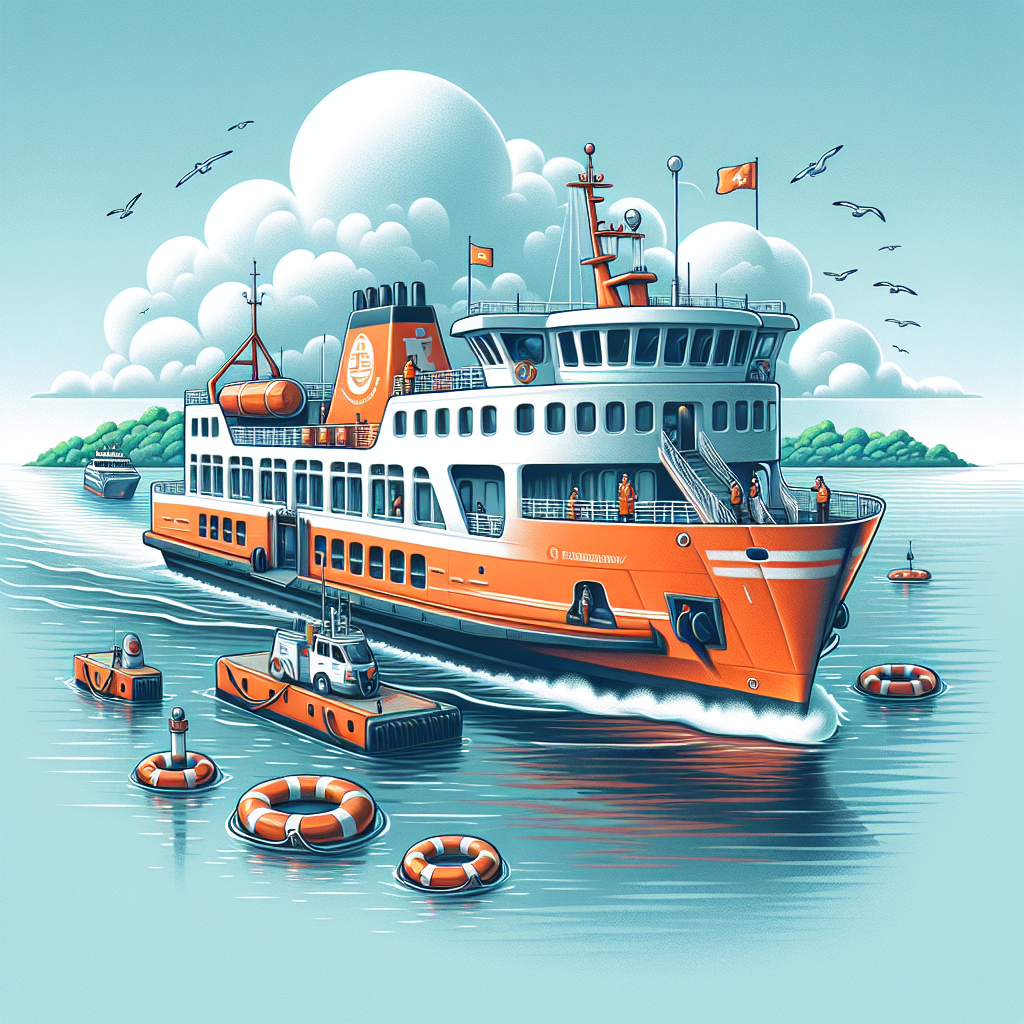New Zealand Secures Supplier for Next-Generation Cook Strait Rail Ferries
In what Mr Peters described as a “no-nonsense solution,” Ferry Holdings has compressed what would normally be a multi-year procurement process into just nine months.

- Country:
- New Zealand
Rail Minister Winston Peters has announced a major step forward in replacing the Interislander fleet, with Ferry Holdings securing the preferred supplier for two new large-scale ferries that will serve passengers, freight, and rail for the next 30 years.
A Fast-Tracked Procurement Process
In what Mr Peters described as a “no-nonsense solution,” Ferry Holdings has compressed what would normally be a multi-year procurement process into just nine months. The process included broad market engagement, a closed tender with six international shipyards, and culminated in a Letter of Intent signed with the chosen shipbuilder.
The agreement locks in a fixed price, with completion of the two ferries scheduled for 2029. The specific shipyard will be revealed once final contracts are signed, but Mr Peters praised all six contenders for their competitive proposals.
“The Letter of Intent is a key milestone—it signals both parties are aligned and ready to finalise technical details before signing later this year,” he said.
Modern Vessels with Major Capacity
The new ferries will represent a significant upgrade to New Zealand’s Cook Strait service, providing expanded capacity, modern technology, and greener operations.
Specifications include:
-
Size: 200 metres long, 28 metres wide
-
Capacity: 1,530 passengers, 70 crew
-
Freight: 2,400 lane metres—enough for trucks, cars, and 40 rail wagons
-
Power: Diesel-electric hybrid system with battery storage
-
Propulsion: Azimuth thrusters, allowing 360-degree manoeuvrability, crucial for navigating the Tory Channel
-
Speed: 20 knots
-
Safety: Full redundancy systems, ensuring safe return-to-port in the event of technical failure
-
Environment: Lower emissions, designed to reduce the environmental footprint over their 30-year life
These features mark a generational upgrade in ferry capability, with designs tailored to balance passenger comfort, freight efficiency, and sustainability.
Savings Compared to Previous Plans
Mr Peters was quick to contrast the project with earlier attempts at ferry replacement, which he criticised as “mismanaged.” He pointed to examples such as Tasmania’s procurement of ferries that lacked suitable berths and argued that sticking with the previous plan could have cost $4 billion for the same outcome.
“Commonsense is at the helm again,” Mr Peters said, promising that taxpayers would see billions saved when the final contracts are disclosed.
Strategic Importance of the Project
The Interislander ferries have been a backbone of New Zealand’s transport network for more than six decades, linking the North and South Islands across the Cook Strait. With freight volumes, passenger travel, and rail connectivity all expected to increase, replacing the ageing fleet has been a longstanding priority.
The new ferries will be capable of carrying both road freight and rail wagons, ensuring seamless intermodal transport between islands. This is seen as critical for the efficiency of New Zealand’s supply chains and for reducing reliance on long-haul trucking.
Next Steps
The Letter of Intent now paves the way for final negotiations on design, construction, and delivery. Once signed, construction of the ferries will begin, with delivery targeted for 2029.
According to Ferry Holdings, the staged process—beginning with a broad Expressions of Interest phase, followed by detailed Requests for Information and proposal evaluations—has allowed the company to clarify technical requirements and ensure that the final ships will be purpose-built for Cook Strait’s demanding conditions.
Looking to the Future
With hybrid propulsion, advanced safety systems, and the largest capacity ever on the Cook Strait, the new ferries are expected to transform inter-island travel for both passengers and freight.
“This deal readies the Strait for another 30 years of reliable service,” Mr Peters concluded, framing the procurement as both a cost-saving and future-proofing measure.
ALSO READ
Yogi Adityanath Launches Transformative Transport Initiatives in Uttar Pradesh
CM Yogi Adityanath Emphasizes Road Safety and Initiatives in UP's Transport Sector
Auckland Transport Shake-Up Restores Power to Elected Leaders and Communities
The Transportation Dilemma: Parents Struggle Between Jobs and Kids' Education
Maharashtra's Push for Clean Transport: Toll-Free Ride for Electric Vehicles









